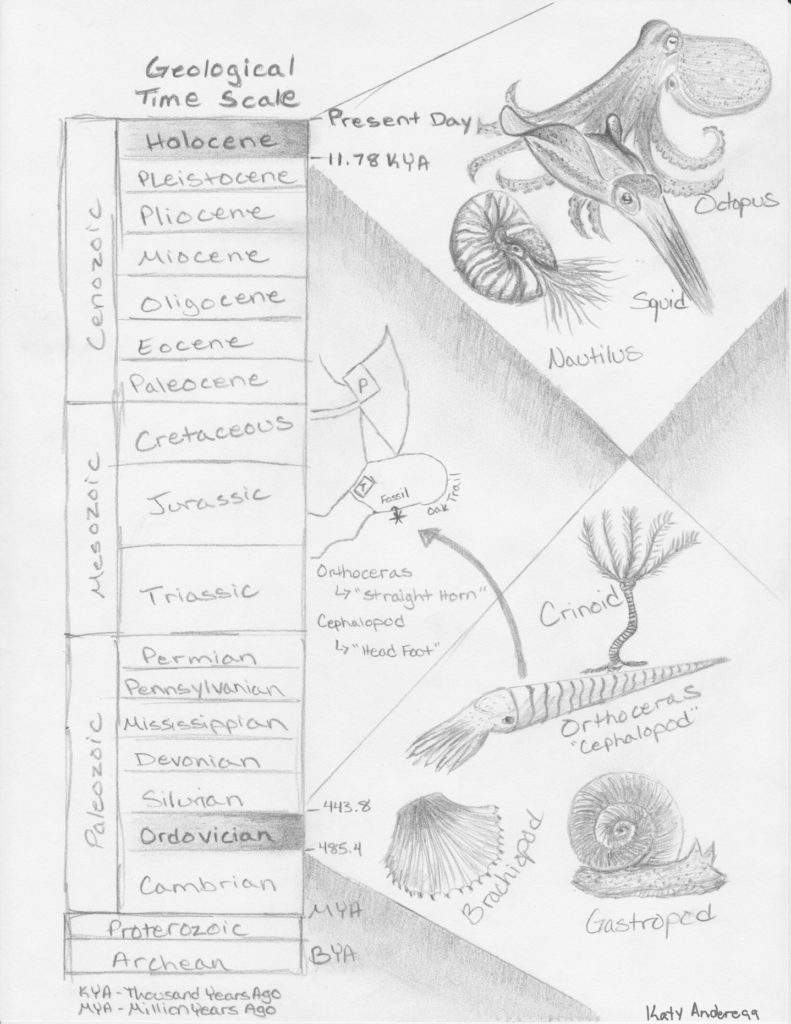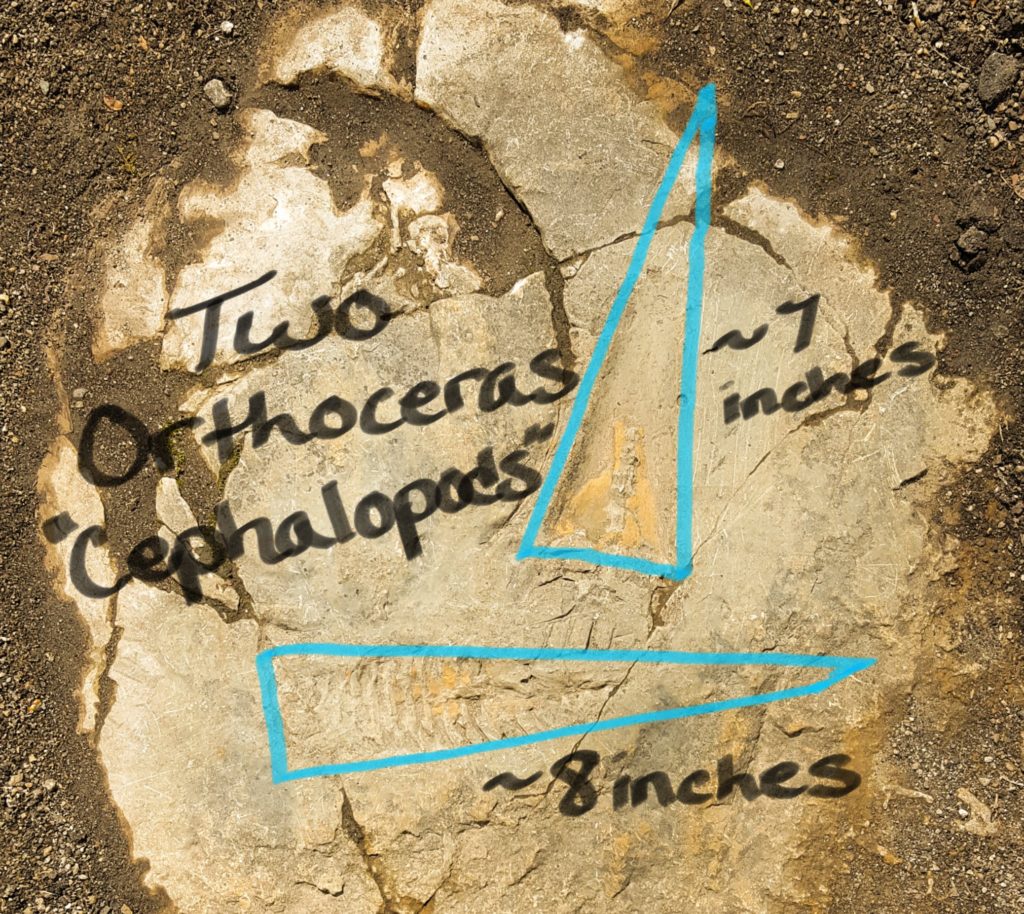We have a new facebook page. Like or Follow our page to keep up to date with our events.
Cephalopods
By: Katy Anderegg, Naturalist/Program Coordinator
About 460 Million years ago, the land that is now River Bend Nature Center, used to be a shallow sea containing a multitude of small aquatic creatures such as snails (Gastropods), mollusks (Brachiopods), and squid-like creatures (Cephalopods) among others. Cephalopods are the group of animals that include present day squid, octopuses, and nautilus. They all lived during the Ordovician Period. The atmosphere was mild to tropical and the land mass was called Gondwana. It was not yet separated into different continents as it is today.
River Bend Nature Center is home to many different types of fossils. They range in size from small specs to a few inches long. Larger fossils have been found as well, but are not common. Our most famous fossil is located south of Trailside Building on Oak trail. You can clearly see the remains of two fossils. The identity of one of them has been known for years, a cephalopod, while the other “tooth-like” shape remained a question until now! Professor David Fox from the U of M, identified the tooth-like shape to be an Orthoceras! A “straight horn” shelled cephalopod. One of the fossils was buried deeper than the other, showing the cross-section of the cephalopod shell chambers. These chambers enlarge as the animal grows. The second fossil is an imprint left from the smooth, horn-like shape of the shell. Only a head with tentacles stuck out the widest part of the shell. A siphuncle (hollow tube) runs through the center of the chambers for water and air regulation, allowing the cephalopod to control its buoyancy.
Check out our fossils the next time you’re at River Bend! You can find them around the old quarry too. Please don’t take the fossils home. We want everyone to enjoy the same experience. Please remember that “What lives here, grows here, dies here, stays here!” Nature, plants and animals, need all that is in their environment. When we remove pieces of it, we are removing a home, food or some other need. Thank you and enjoy exploring our fossils!


